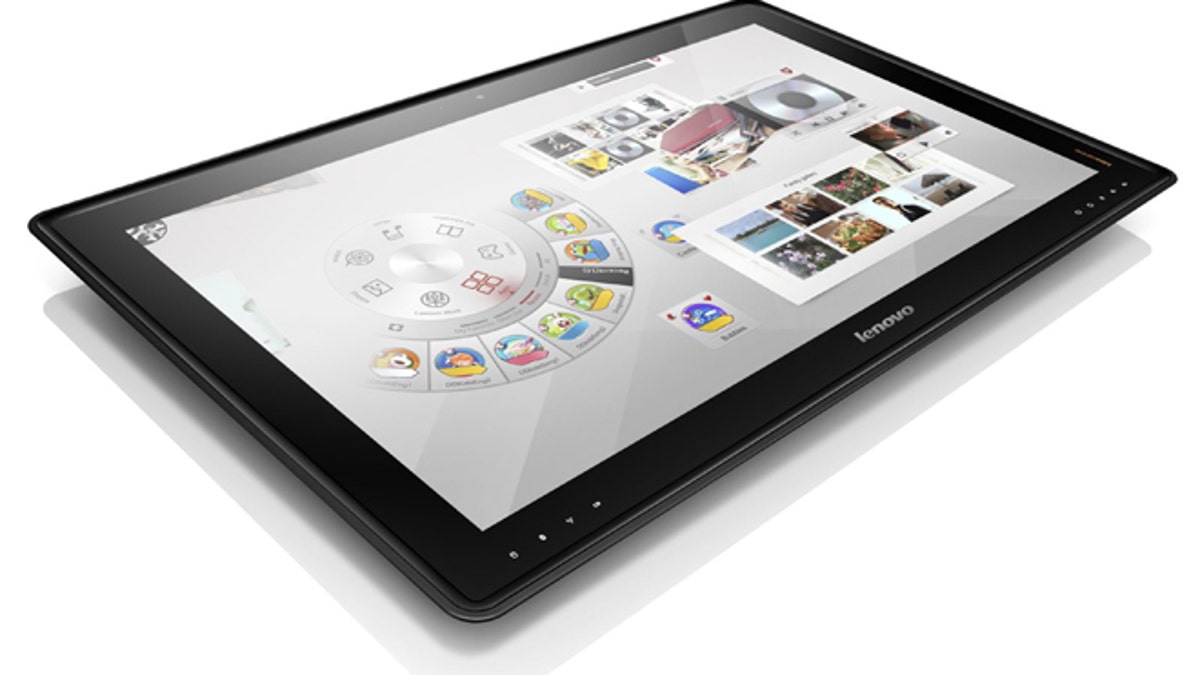
Jan. 7, 2013: The Lenovo IdeaCentre Horizon Table PC -- which the company calls the first "interpersonal computer." It's a PC the size of a coffee table that works like a gigantic tablet and lets four people use it at once. (AP Photo/Lenovo)
LAS VEGAS – Dismayed that family members are spread out over the house, each with a separate PC or tablet? Lenovo has something it believes will get them back together: a PC the size of a coffee table that works like a gigantic tablet and lets four people use it at once.
Lenovo Group Ltd., one of the world's largest PC makers, is calling the IdeaCentre Horizon Table PC the first "interpersonal computer" — as opposed to a "personal computer."
At first glance, it looks like a regular all-in-one machine in the vein of the iMac: It's a 27-inch screen with the innards of a Windows 8 computer built into it, and it can stand up on a table.
But you can pick it up off the table, unhook the power cord and lay it flat for games of "Monopoly." It's big enough to fit four people around it, and the screen can respond to ten fingers touching it at the same time.
As a tablet, it's a monstrosity. The screen is the size of eight iPads stitched together, and it weighs 15 pounds. It's almost as homebound as a flat-panel TV.
The Table PC will include plastic "strikers" for "Air Hockey," and joysticks that attach to the screen with suction cups for other games, including multiplayer shooter "Raiding Company."
In a demonstration at the International CES on Sunday, photos and videos could be rotated with fingers. Spreading five fingers at once on the screen cleared the screen of clutter, while squeezing them together brought the photos and videos back.
Lenovo, a Chinese company that owns IBM's former PC business, said the Table PC will go on sale this summer starting at $1,699.
Microsoft Corp. pioneered the idea of a table PC with the Surface, a PC with a 30-inch touch-sensitive screen released in 2008. It was designed for store displays and other commercial applications. The concept is now called PixelSense, as Microsoft started using the "Surface" name for an unrelated tablet computer last year.
More recently, Sony released the Tap 20, an all-in-one PC that can also be laid flat. But it's smaller than the Lenovo model, at 20 inches diagonally, and doesn't have as much table-oriented software as the Table PC.








































